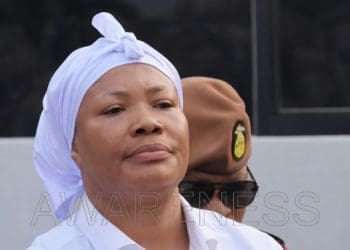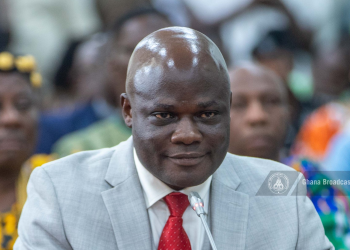The Trades Union Congress (TUC) has firmly rejected the 2.45% proposed hike in electricity tariff announced by the Public Utilities Regulatory Commission (PURC), citing concerns over the growing financial burden on already struggling workers and households.
The TUC criticised the Commission for introducing two new variables which are the reserve capacity charge and cost of liquid fuel, into the tariff formula for the third quarter of 2025.
In a statement, the TUC emphasised that any upward adjustment in utility tariffs would further erode the disposable income of Ghanaian workers, many of whom are already facing rising costs of living. The union warned that the proposed increment could worsen economic hardships and deepen inequality across the country.
The union argued that the two were not part of the four original variables that have historically guided the quarterly reviews: the cedi/dollar exchange rate, inflation, generation mix, and fuel cost (mainly natural gas).
“This is a clear case of deliberate manipulation intended to deny workers and Ghanaians the benefit accrued from the current low foreign exchange and inflation rates,” the TUC said.
The TUC is urging the Public Utilities Regulatory Commission (PURC) to reconsider the request for higher tariffs and instead prioritise measures that improve operational efficiency and reduce wastage in the power sector.
According to the union, it is unacceptable for consumers to continuously bear the cost of inefficiencies within the electricity supply chain, including power losses, poor management, and uncollected revenues.
It added that recent macroeconomic gains, especially the appreciation of the cedi against the dollar, should have translated into significant reductions in both electricity and water tariffs. #
Instead, the government and PURC have used different standards to their advantage, citing the cedi’s appreciation as a reason to compel the Ghana Private Road Transport Union (GPRTU) to reduce fares, while ignoring the same logic when it came to utility pricing.
“The least we had expected, after accepting a modest 10% wage increase while inflation was over 23%, was for the government to offer some relief by reducing electricity tariffs, not imposing another increase,” the statement noted.
The TUC described the tariff hike as not only “unwarranted” but also unethical, undermining the credibility of the tariff-setting process. It emphasized that during the previous quarter, when economic indicators were unfavourable, consumers were hit with a 14.75% increase in electricity tariffs and a 4% increase in water tariffs. Now that the indicators are favourable, the Commission has chosen to bypass its own established principles.
The TUC called for greater transparency and accountability from utility providers and proposed a broader national dialogue to explore sustainable energy solutions that are both affordable and reliable.
In a statement issued on Wednesday, June 25, the PURC stated that the review was carried out in accordance with its Quarterly Tariff Review Mechanism, which considers key economic indicators such as the cedi-to-dollar exchange rate, inflation, the energy generation mix, and fuel costs—primarily natural gas.
The Commission emphasized that these variables have a direct impact on the cost of delivering utility services and must be assessed regularly to sustain the sector.
The latest review incorporates a projected average inflation rate of 20.67%, an exchange rate of GHS10.3052 to the US dollar, and a rise in the Weighted Average Cost of Gas (WACoG) to USD 7.7134/MMBtu.
“The Commission has carefully analysed the existing parameters and, considering the competitiveness of industries and the general living conditions of Ghanaians, has approved a 2.45% increase in electricity tariffs across board and 0% increment in water tariffs,” the statement noted.
The energy generation mix for the third quarter remains unchanged, with 28.8% from hydro sources and 71.2% from thermal sources. The Commission also considered GHS488 million in outstanding revenues from previous quarters and the cost of maintaining reserve capacity to ensure grid stability.












